It’s about time! You finally made the decision to buy your first DSLR camera, you have saved a couple of bucks and started browsing around. Quickly, you realize the market is full of good (really good) cameras, and you start to feel overwhelmed.
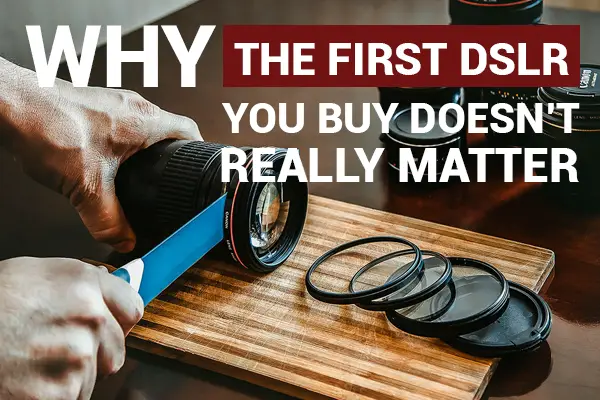
You ask your photographer friend or, even worse, a camera store salesman and end up feeling even more confused. The truth is that it takes little to no time to realize how hard this decision can be, especially if you will also think of choosing lenses and accessories.
A digital camera will be a great step into photography, whether you are planning to become a professional photographer or have the hobby of a lifetime! So don’t give up just yet: Let me tell you what no one else will tell you! It doesn’t matter which first DSLR camera you buy!
If this is your first “big” camera with interchangeable lenses, any DSLR camera will do. Here is why!

There Are Excellent Brands on the Market
Yes, we all know about Nikon and Canon, but the market has many more to offer that are also splendid cameras: Sony and Pentax will also offer excellent quality and price as well.
Don’t feel bad if you end up buying what your other couple of photographer friends have because…hey! You will get to borrow their lenses!
You don’t necessarily “marry” a brand, even tough it’s true that, if you buy a Nikon body, you will get a Nikon lens first. However, you can always buy different brands of lenses for each mount. Both Tamron and Sigma offer great quality lenses as well.
No One Can Really Recommend One and Only Single Camera
Anyone that recommends just one camera for you will be mostly biased by their personal experience and choices that they have made after a while of camera handling, and will only be partially driven by their sincere intentions to help you.
Depending on everyone’s experience and photography field, the camera they end up keeping for life will not be their first one. In fact, you will probably have a main one and a backup someday! This won’t be the camera you have forever, so don’t worry too much about it.
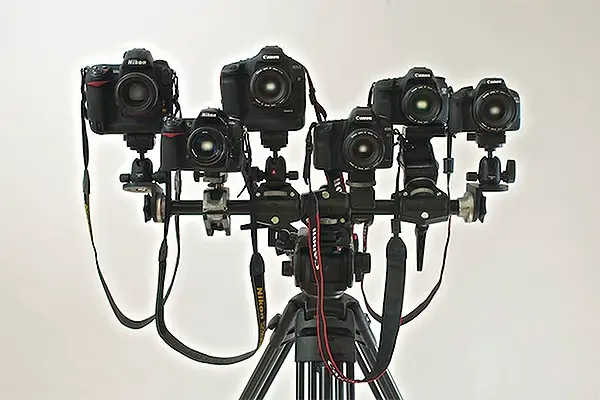
You Won’t Need All the Camera’s Capacities
Don’t buy top of the line because you probably won’t even need a full-sensor camera at the beginning.
Some cameras now have a GPS, HD video and other amazing capabilities that you never knew you wanted. But that’s how the technology market works! There is always something better, newer and more expensive. Instead of spending a thousand dollars more on the latest camera, buy another one, and get a great portrait lens or an awesome zoom to help you get started.
We recommend you use and exhaust your camera capabilities until you need to upgrade. This way, you make sure you are learning the most, maximizing your efforts to make beautiful photographs, and making the most out of your money too!
Tip: Remember you also need to invest in software and lighting sometimes, so help your budget!
Anything Is Better Than Your Phone Camera
Anything is better than your smartphone camera or your four-year-old, point-and-shoot camera. At the beginning, the camera will impress you, and this will last for a while! The sharpness, color and fastness of DSLRs will leave you with your mouth open, so enjoy it!
You won’t really need to bump your ISO to 1600 to start with, and you will survive on the pop-up flash for a good amount of months. A good pace in photography is always a progressive one!
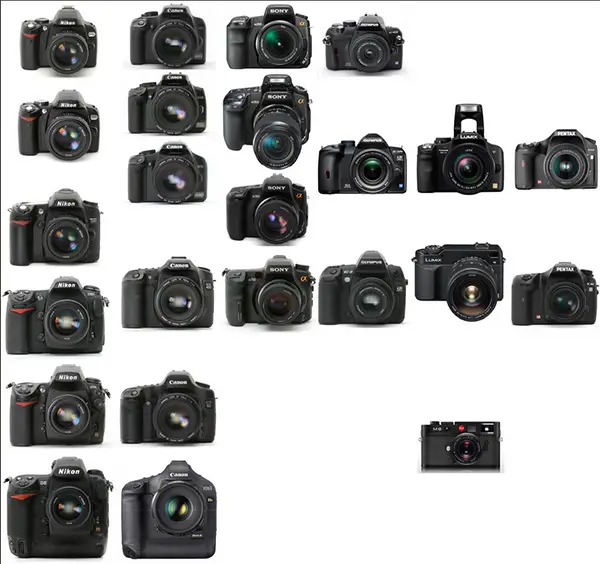
If You Don’t Decide Now, You Never Will
Some people procrastinate on learning photography until they have a real camera; it happens more than you think. A “real” camera or a DSLR will help you get that boost of motivation and will definitely be a great tool to better pictures.
We understand that feeling but still encourage you to take the plunge. If that’s what’s keeping you from starting to better your photography perspective, do it! Get any DSLR, and start shooting now!
You Will Break It Soon Enough
This might not even be true for everyone, but the first camera you use will take a lot of beatings. Shortly after. you will realize how delicate these things really are–and how clumsy you are.
You will take it everywhere (hopefully), and it will be your experiment companion. Why take a 5000-dollar camera if you can bring your 500-dollar one without worrying so much? AND still take great pictures! I think you know what I mean!
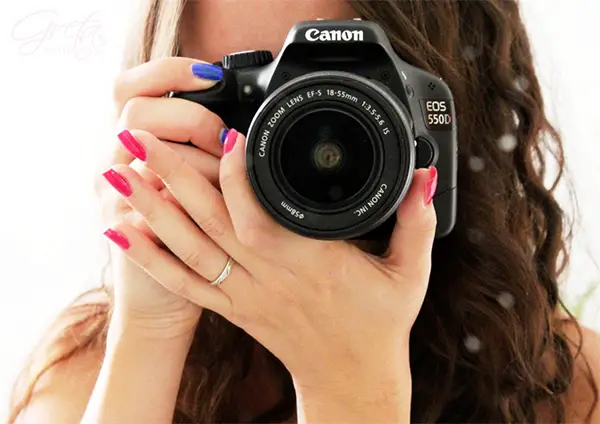
What to Look for ?
Here are a couple of good tips to keep in mind when getting your first DSRL:
Your Budget
Establish a budget of what sounds reasonable and what you are comfortable with. Remember you will also need at least one lens, and it will be close to no time until you want another one.
Possibly Buy Used
Cameras work a long time, so don’t be afraid to pick up a used camera or even a refurbished one. If possible, compare with the “new” price, and make sure you are getting a good deal.
When buying online, there is no real chance to see it and there are always risks, so try to check your vendor a little more, and ask for at least a three-month warranty.
Touch It
How does it feel in your hands? If possible, go to a camera store and feel the cameras in your hand. Sometimes, this helps you lean towards a brand or over another.
Some cameras might feel bulky, or you won’t like how the controls are set. If it’s your first DSRL camera, everything will feel big, and everything will be new, but it’s good to get a sense of what you are getting into.
Read Reviews
Once that you have narrowed down around five cameras, read the reviews as exhaustively as you can, always keeping in mind the points above. Just read closely, and make sure you are not getting the less positively reviewed one in the whole market. That wouldn’t be fun.
Good luck!

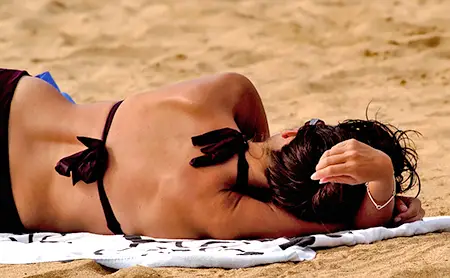
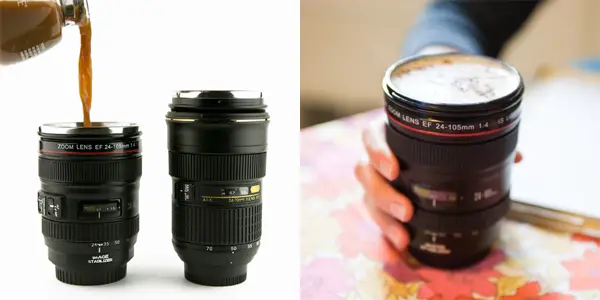
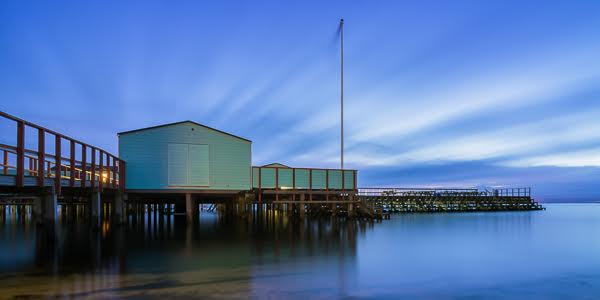




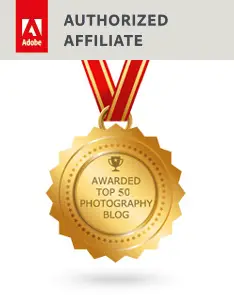
Why this fixation with DSLRs? They are not the only Pro or advanced cameras choice. It is so silly, it is like saying:
Why the First Camera You Buy Doesn’t Really Matter, as long it is a DSLR.
Hi!
Because what your first camera is or will be wasn’t the discussion .
DSLRs are the to go option for modern photographers. I wouldn’t trust or recommend any digital camera that is just “advanced” or sells as “pro”. I would, however, recommend digital SLRs , since I think they are all mostly good because of their optic system.
If someone wants to just keep shooting pictures of your dog or the occasional sunset, any camera would do 🙂 . in this case, yes, your first camera (just “camera”) can be anything, even your phone camera!
My first camera was the infamous Nikon FM . . . one of the best cameras ever made!
I clearly mentioned “PRO or advanced cameras” on my comment, point-and-shoot cameras are dead at present.
and DSLRs will die just as quickly, Mirrorless are the way to go for modern Pro / Advanced photographers.
Try a Fuji XT1 or Sony A7r or an Olympus OM1.
This fixation with DSLRs are not helpful, I come from a Leica background, so I know you don’t need a mirror to take great pictures, but I wouldn’t knock off people who want to take BETTER pictures of their dogs and sunsets, I recently advised a friend who wanted to upgrade her T2i to get a Sony RX100 instead. She loves it, she has re-discovered her love for photography, and her pictures are greater than before.
You don’t have to suffer to get great pictures, and as they say,
The best camera is the one you have with you.
The only people buying their first DSLR are people who want to look pro but shoot in P mode and auto-focus, and because DSLRs are so bulk and heavy, they end up taking more pictures on their iPhones.
You are clearly stuck in the past, just like Canon, the Mirror is dead, for various reasons. They are bigger and heavier than it needs to be, it gives you an unrealistic representation of how your photo will be, Mirrorless cameras with the new OLED EVF shows you exactly what your photo will be, on a DSLR you have to switch to live-view mode robbing the whole point of the mirror, and pretty soon entirely electronic shutters as the “silent mode” in the Panasonic GH4 will remove the last vestiges of mechanics in modern professional cameras.
There are plenty of blogs from Professional Photographers switching to Mirrorless cameras, you should read them.
All the Best.
ok 🙂
Amen brother! I agree with you 100%. DSLR’s are dead in the water.
Screw that, I’ll stick with a DSLR.
When someone has a bias for a particular technology they overlook the advantages of the other. Mirrorless cameras are better for some things (most of which have been pointed out in this thread) DSLRs are better for others. The foolish thing is not to be “stuck in the past” but to be a blinkered Fan of one technology or the other.
The problem with mirrorless (for some types of photography) is lag. The best current EVFs )and rear screens) do not have much lag, but it is still noticeable. The underlying cause is the time it takes to process a RAW image into something that can be presented in the viewfinder. And with more and more megapixels that becomes an ever bigger task.
Maybe we will eventually have on-board processors that can do that processing fast enough and designers will have solved the problems of what to do with the heat that the process generates and the amount of battery power that it uses. Until then DSLRs will retain one inherent advantage.
No doubt we shall see dedicated mirrorless cameras taking more and more market share from DSLRs. Maybe the production of DSLRs will even end completely. If so it will not be because mirrorless technology is superior in every way. It is a superior technology in many ways, but not all. There are still plenty of situations where seeing the scene in real time is more important than seeing the colour balance and how the image will be exposed.
Mirrorless cameras will probably come to dominate commercially, not because of any overall superiority, nor because many photographers will find them preferable for their needs, but because with fewer mechanical parts cameras will be cheaper and easier to make, which means bigger profit margins.
In fact, taking a wider view, mirrorless cameras are already greatly in the majority. What is a smartphone, if not a mirrorless camera (with a lot of other capabilities tagged on)?
Yup, I agree with you on this. Any DSLR or mirrorless camera will do. So many people fall into this pitfall of trying to buy the most expensive piece of kit possible as their first “real” camera before understanding what they are getting into.
It’s not just the camera body, but the lenses, bags, tripods, flashes, SD cards, umbrellas, reflectors, camera straps, software, computers and all the minute little things that you end up buying to take care of your stuff. They end up buying enough equipment to shoot a professional fashion shoot, but then they realize they love shooting sunsets.
My first DSLR was a lowly Canon Rebel XSi. I love that thing, and it still works. Some of my best pictures have been taken on that six year old camera. Sure, ISO isn’t as impressive at 400. It doesn’t have a lot of the dials that other advanced cameras have, so I have to dig into the menu, but overall, it does what I want it to do.
I learned the basics. The importance of the ISO-shutter speed-aperture relationship, the reasons to invest in a good quality tripod, and the amazing things you can do with a flash. All of that came with time, and the exploration of the craft of photography was exponentially more gratifying than the mundane task of buying equipment.
My suggestion for beginners is to try the basic DSLR from Pentax, Canon or Nikon. If the body size doesn’t feel right, then mirrorless cameras from Panasonic, Samsung, Fuji or Sony would be my next suggestion. Invest a little money in a basic interchangeable camera body, skip the kit lens and buy the most affordable 50mm f1.8 prime. Invest in a solid tripod and ball head. I’ll repeat: invest in a solid tripod and ball head.
Then, your next purchase should be a photography class or a vacation to a place you’ve never been and learn through experience, learn through discovery. Join a Meetup group, a camera club, a critique forum. The best equipment any new photographer could have is something worth shooting, not the equipment itself.
It’s makes a big difference what your first camera is, especially now that mirrorless cameras are surpassing DSLR’s in functionality and are at least on par in image quality. Your first camera body and kit lens is a relatively inexpensive purchase in comparison to additional lenses and accessories. I started out with Nikon DSLR a few years ago and purchased about $2000 in lenses and accessories only to switch over to micro four thirds this year. Deciding which mirrorless camera to go with was a big choice for me, as I have already spent about $1,500 dollars in additional lenses and I hope I won’t be switching to another maker in a few years. I would caution a beginner against buying a DSLR as some of the current mirrorless cameras are superior to DSLR’s in functionality. If you think that I am exaggerating, please try the Olympus EM-10. It runs circles around my Nikon D7100. My guess is that over the next five years, no one will be purchasing APS-C DSLR’s and even full frame DSLR’s may be the way of the DoDo bird. Also, no one is going to lend their lenses out to beginning user. A really good lens is over a thousand dollars, a no one will be lending that out. I have never had anyone offer to lend me a lens.
In the not so distant future, yup I think you’re right, mirrorless cameras will be dominating sales over traditional DSLRs. Mirrorless is the future.
But I don’t think it’s the present. It’s not a knock on the mirrorless sector, there are some very good mirrorless systems out there, I just don’t think they have knocked it out of the park just yet. But they are close.
Since this is a discussion on beginner photographers and their very first purchase, I’ll have to nudge them towards a DSLR over a mirrorless. Reason why is because on a dollar for dollar comparison, DSLRs give you more bang for your buck.
They have bigger sensors than most (not all) mirrorless cameras, which helps with noise perdormance and limiting tje crop factor.
The big two, Canon and Nikon, plus Pentax have a broader selection of lenses, and Pentax and Nikon allow you to mount legacy lenses from the 80’s and on without the need of an adaptor. For begginers looking to save on money and use high quality manual lenses, this is awesome.
Pentax provides begginers an entry level, weather sealed body that’s less than $600 with a kit lens or $500 for body only. The cheapest mirrorless body with weather sealing I could find is the Lumix GH3 at $1097 from Amazon. Heck, even the Pentax K5II and K5IIs have a magnesium alloy body with weather sealing for $718 (this is what I use by the way and it’s fantastic).
Lastly, mirrorless cameras tend to be small. That’s great for pocketability, but at times this compromises ergonomics, specially for people with big hands. I prefer a meaty grip, and most mirrorless eschews a hand grip altogether. With DSLRs, you’ll have a substantial grip compared to most mirrorless cameras. Is this isn’t a dealbreaker, that’s a personal preference I can’t answer to someone buying their first body, but it’s something to consider.
Everybody talks about how important a tripod is. I’m sorry, but with the current image stabilization and high ISO performance, it is rarely required. Unless I am doing night photography or shooting fireworks, I never found a use for it and found it very inconvenient. A tripod is not a must for a beginning photographer.
I’ve found that everyone at some point, buys a tripod. However, not all tripods are created equal and instead of putting down $50-$75 for a slim, plastic tripod, you might as well invest in a solid tripod and ballhead now.
I’ll give you that, a begginer just buying his first DSLR or mirrorless doesn’t need it right away, but most likely than not, they’ll buy one at some point. Might as well save some money and buy a good one that will serve them well.
Also, the life of a good tripod will far outlast a flimsy one. A good tripod would probably last you years of service, probably even outlast a few camera bodies as well. Cheap tripods might not last half the life of your camera requiring to buy a second one sooner rather than later.
Also, I don’t care how high your ISO goes, there are some shots you’ll need a sturdy tripod for. Long exposure shots, interior photography, portrait work, macro photography, etc, etc. Some types of photography, no mater how you slice it, you wouldn’t want to do without a solid tripod.
Enjoyed your article and the points that you made. DSLR, mirrorless, just give it a try and experiment. That’s the fun. How lucky we are to have digital as an option as it speeds up the feedback loop and learning curve. Well done!
If your first DSLR will be your only one, then I think the choice does matter. If 500 is a huge amount of money for you and if you will NEVER even be able to think about a $5000 camera then I think the choice does matter because you will get no second chance. If you are of an age when the years remaining to you are severely limited and your income is severely limited to a one time splurge of that 500 dollars, then I think it does matter. If your first DSLR gets broken and you cannot even think about replacing it, then it does matter what you choose and it certainly matters how careful you are with it because, again, there won’t be any second chance.
Very interesting tips for those interested in taking photography one step beyond.
Gracias Laura!
Con mucho gusto!